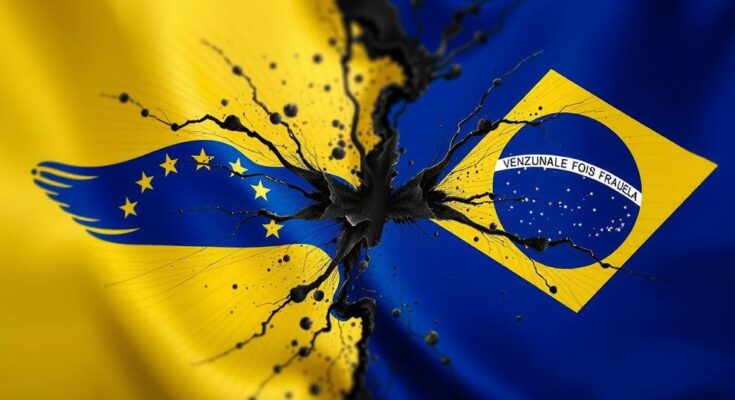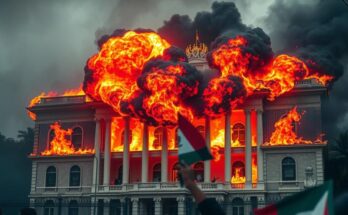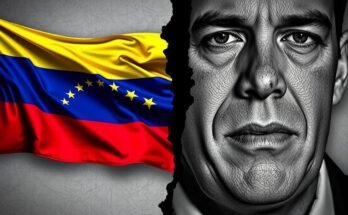Tensions between Brazil and Venezuela escalated following Brazil’s veto of Venezuela’s entry into BRICS during the summit in Kazan. The Brazilian government did not publicly explain this decision, which Venezuela interpreted as a substantial betrayal tied to the contentious nature of Venezuela’s elections. Maduro claimed assurances from Brazil’s Foreign Minister against a veto, provoking further discourse on Brazil’s foreign policy direction. Both nations are now poised to navigate a fraught diplomatic landscape as they consider the implications of this incident.
The recent BRICS summit in Kazan, Russia, highlighted escalating tensions between Brazil and Venezuela following Brazil’s decision to veto Venezuela’s entry into the organization as a partner state. This incident is emblematic of the strained relations since Nicolás Maduro’s electoral victory, which has been contested by the opposition. The Brazilian government, under President Lula da Silva, has not publicly articulated the rationale behind the veto, further complicating the diplomatic landscape. Brazil’s delegation, led by Foreign Affairs Minister Mauro Vieira, did not provide any explanations regarding the exclusion, though internal sources indicate that the contentious nature of Venezuela’s elections weighed heavily on this decision. In response, Venezuelan officials have characterized Brazil’s actions as a severe betrayal, indicating that the veto represents a continuation of adversarial policies reminiscent of the previous Bolsonaro administration. Maduro publicly questioned the veto during his program, claiming that he was assured by Vieira that Venezuela would not be barred from joining BRICS. The political analysts suggest that by blaming diplomat Eduardo Paes Saboia for the veto, Venezuela is articulating disappointment while leaving the door open for potential dialogue. This incident signals a notable shift in Brazil’s foreign policy compared to earlier administrations, leading Venezuelan commentators to express concern about Lula’s commitment to regional integration and cooperation. Following this diplomatic debacle, there is an expected cautious approach from Brazil, awaiting further actions from Venezuela while striving to maintain relations. Significant implications hinge upon Brazil’s upcoming presidency of BRICS in 2025, which may influence Venezuela’s future participation in the bloc. Meanwhile, the diplomatic community anticipates that both nations will endeavor to navigate these turbulent waters to facilitate a resolution.
The diplomatic fallout between Brazil and Venezuela at the recent BRICS summit is rooted in the troubled history of interactions between the two countries, especially in light of Nicolás Maduro’s controversial presidency. Brazil’s veto of Venezuela’s entry reflects longstanding tensions exacerbated by concerns over the legitimacy of Venezuela’s electoral process and the broader implications of regional cooperation in Latin America. Historically, Brazil, especially under prior administrations, championed progressive integration efforts across the region, making this recent veto a stark deviation from those principles. The unique geopolitical context, including the energy dynamics of both nations, positions the veto as not merely a political slight but as one that could impede cooperative efforts within critical international frameworks, such as BRICS and OPEC.
In conclusion, the recent tensions between Brazil and Venezuela following the veto of Venezuela’s inclusion in BRICS represent significant challenges for diplomatic relations in Latin America. Brazil’s decision, perceived as a betrayal by Venezuelan officials, not only strains ties between the two nations but also raises questions about Lula’s administration’s commitment to regional integration. As both countries navigate this diplomatic impasse, the potential for future collaboration remains uncertain, with attention focused on Brazil’s strategic role within BRICS moving forward. The outcomes of these developments will undoubtedly influence the political landscape and energy cooperation in the region.
Original Source: www.brasildefato.com.br




